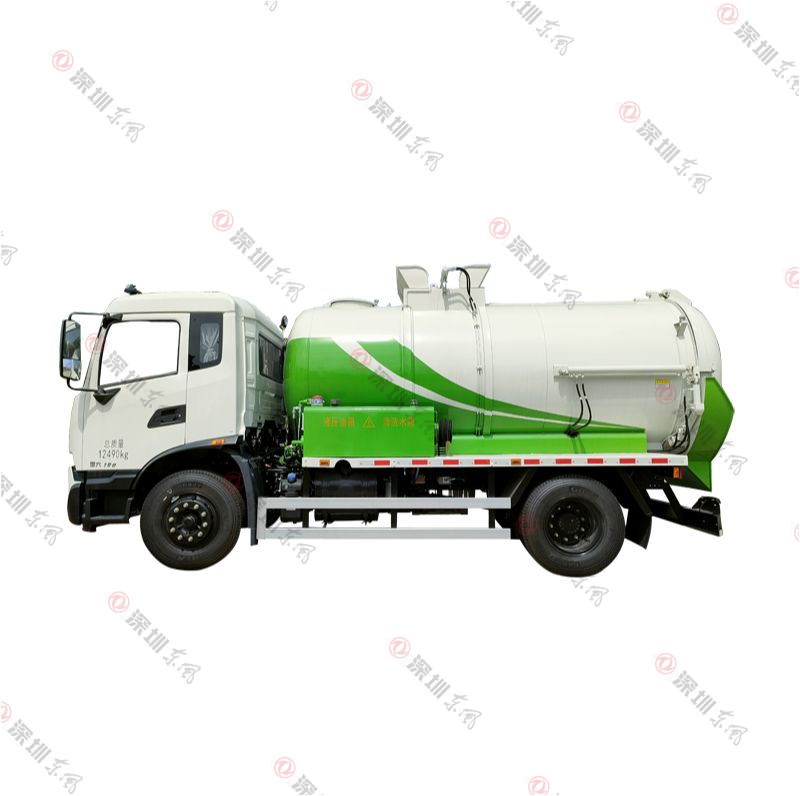With the global emphasis on sustainable waste management and stricter food waste disposal regulations, the Kitchen Waste Truck is rapidly gaining traction as an indispensable vehicle for urban sanitation systems. Designed specifically to handle organic and food-related waste, these trucks combine advanced sealing technology, anti-corrosion materials, and efficient unloading systems to ensure safe and hygienic transportation of kitchen refuse.
Across major cities, food waste accounts for 40–60% of municipal solid waste, making it one of the most pressing environmental challenges. Improper handling of kitchen waste not only leads to unpleasant odors and pests but also poses serious risks of groundwater pollution and greenhouse gas emissions.
The Kitchen Waste Truck addresses these challenges head-on. Unlike standard garbage trucks, it is purpose-built for wet and organic waste, ensuring secure collection, leak-proof transportation, and efficient unloading, all while complying with strict hygiene and environmental standards.

Sealed and Leak-Proof Design
The trucks feature a fully sealed tank structure with anti-overflow systems to prevent leakage during transport, minimizing odor and environmental contamination.
Anti-Corrosion Materials
Built with stainless steel or specialized anti-corrosion coatings, these vehicles withstand the acidic and moisture-heavy nature of food waste, ensuring long service life.
Automated Unloading System
Equipped with hydraulic lifting and tipping mechanisms, the truck allows quick and hygienic disposal of kitchen waste at treatment facilities, reducing manual labor and contamination risks.
Odor Control and Safety
Advanced ventilation and deodorization systems help maintain a clean environment during collection and transportation.
Flexible Loading Options
Compatible with various bin sizes and collection systems, making it adaptable for both small-scale food establishments and large municipal collection centers.
Eco-Friendly Operation
Some models now integrate electric or hybrid power systems, helping reduce carbon emissions and supporting green city initiatives.
The Kitchen Waste Truck has become a vital tool in multiple sectors:
Restaurants & Catering Businesses: Daily food waste collection with hygienic handling.
Schools & Hospitals: Safe and efficient transportation of large volumes of organic waste.
Residential Communities: Supports urban garbage classification systems by ensuring separate collection of kitchen waste.
Municipal Waste Management: Forms part of city-level organic waste treatment and recycling programs.
Composting & Biogas Plants: Efficiently delivers food waste to recycling facilities where it is converted into renewable energy or fertilizer.
Governments worldwide are mandating stricter food waste segregation policies, pushing municipalities and businesses to adopt specialized vehicles for collection. For example, many Asian and European cities have introduced compulsory kitchen waste recycling programs, driving demand for dedicated trucks.
Industry analysts predict that the global market for kitchen waste trucks will expand significantly in the next five years, driven by:
Rising urban populations and food consumption.
Increased investment in organic waste treatment infrastructure.
The global push for circular economy and renewable energy derived from food waste.
Integration with Smart Waste Management Systems
Leading manufacturers are equipping kitchen waste trucks with GPS tracking, IoT monitoring, and smart weighing systems. These innovations allow real-time monitoring of waste collection routes, improve efficiency, and provide data for city-wide waste management platforms.
Combined with digital waste classification systems, kitchen waste trucks are becoming part of smart sanitation networks, helping cities transition to intelligent and sustainable waste management solutions.
The Kitchen Waste Truck is more than just a vehicle—it is a strategic tool in sustainable urban development. As food waste recycling gains momentum, demand for specialized trucks will continue to rise, with future models expected to feature:
Full electrification for zero-emission waste transport.
Smarter data integration with urban waste monitoring platforms.
Enhanced hygiene systems to meet stricter public health standards.
The growing adoption of Kitchen Waste Trucks reflects a global shift toward responsible waste management and green urban living. By combining sealed construction, anti-corrosion durability, automated unloading, and smart technology, these trucks provide a practical and future-ready solution for handling one of the most challenging waste streams—food waste.
As cities strive for zero-waste goals and circular economy practices, the kitchen waste truck is set to become a cornerstone of sustainable sanitation strategies worldwide.